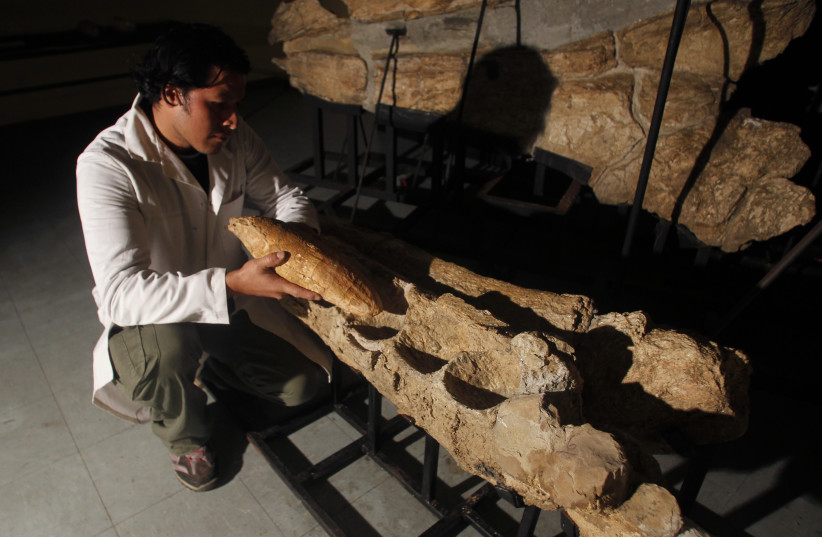The Olympicetus thalassodon, a recently discovered extinct species of odontocete, commonly referred to as a "toothed whale," was an early ancestor of modern-day dolphins, according to a study published on June 23.
The peer-reviewed study, which is published in the academic journal PeerJ Life and Environment, chronicles the findings of the toothed whale species that roamed the Earth 28 million years ago.
The study was made after the fossilized remains of three odontocetes were found in the Olympic Peninsula in Washington state. The remains have been dated as being from 26.5-30.5 million years ago.
"Olympicetus thalassodon and its close relatives show a combination of features that truly sets them apart from any other group of toothed whales. Some of these characteristics, like the multi-cusped teeth, symmetric skulls, and forward position of the nostrils, makes them look more like an intermediate between archaic whales and the dolphins we are more familiar with,” said Dr. Jorge Velez-Juarbe, associate curator of marine mammals at the Natural History Museum of Los Angeles County.
Descendents of the toothed whale
The Olympicetus belongs to a family of species called Simoceditae, which is known to have only inhabited the North Pacific.

This toothed-whale species is the ancestor of other modern-day species, such as dolphins, porpoises, and other species of toothed whales.
Physiological differences found between the Olympicetus thalassodon and other types of odontocetes allowed the researchers to class this as a unique species that had never been discovered before.
"The teeth of Olympicetus are truly weird, they are what we refer to as heterodont, meaning that they show differences along the toothrow,” noted Velez-Juarbe. “This stands out against the teeth of more advanced odontocetes whose teeth are simpler and tend to look nearly the same.”
The researchers said that it was unclear if this newly discovered species had the properties to use echolocation like other species in the same family. However, they were able to confirm a previous study, proving that fetal members of the species could not hear echolocation. Future studies would be needed to understand if this ability developed with age.
